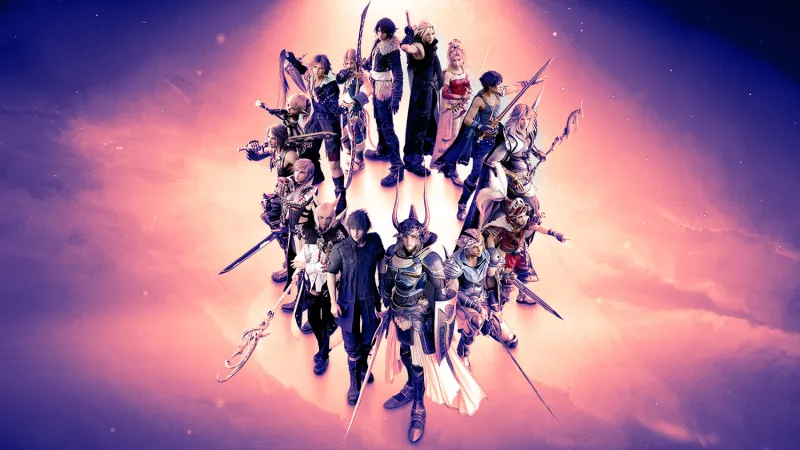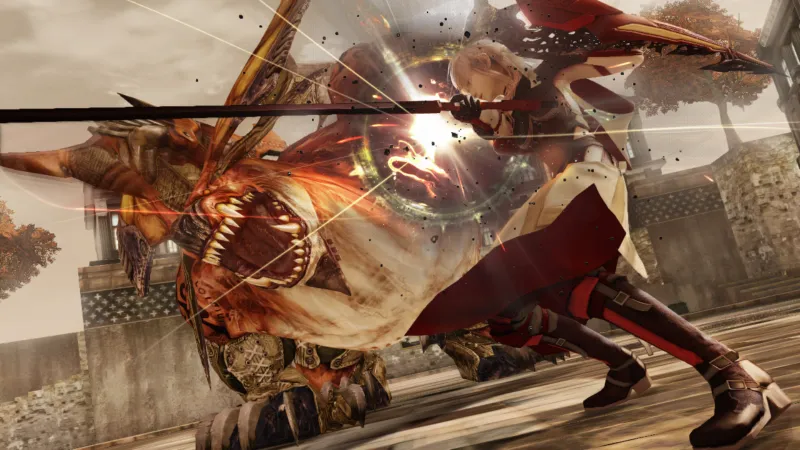
Final Fantasy is a staple in JRPGs and video games as a whole. It might have more entries in it than any other series out there and it won’t be slowing down anytime soon. On top of that, thanks to its anthology-like nature, if one Final Fantasy game doesn’t click for you, there’s a good chance another one will. As a result, ranking the Final Fantasy series can be highly contentious. Everyone has a lot of love for the first entry they played, and then there are heavy hitters like Final Fantasy X and VII, too.
However, the staff here at Game Informer did the seemingly impossible: we ranked all 19 mainline numbered Final Fantasy games, including their direct sequels, from worst to best. As a reminder, this ranking is the sum of collective thoughts of the Game Informer staff and your own personal ranking will almost certainly be different. We’d love to know your ranking, though, so after checking out ours, drop your own in the comments below!
20

Final Fantasy II
There’s an argument to be made that none of the mainline Final Fantasy games are outright bad. However, in any ranked games list, there has to be a game at the bottom and putting Final Fantasy II here was an easy call. It wasn’t released in the West until years later, and by then, the Final Fantasy franchise had moved on to bigger and better things, which made it hard to return to the series’ first sequel.
What’s there isn’t inherently bad, but it’s certainly strange. Unlike Final Fantasy, you aren’t earning overall experience that levels up your character’s stats across the board. Instead, your individual traits like HP, Magic, Stamina, and more, improve based on the actions you actually take in battle. It’s interesting, sure, but it’s more cumbersome and confusing than it is fun. Unfortunately, since combat is core to the game, the leveling system really bogs it down. That its story is unremarkable on top of that makes Final Fantasy II hard to recommend to anyone lacking a passionate interest in the franchise’s history, but the recent Pixel Remaster does make playing through it much easier.
19

Lightning Returns: Final Fantasy XIII
Lightning Returns: Final Fantasy XIII, for all its faults, is special, though perhaps not in the way Square Enix wanted. The only threequel in the series, Lightning Returns is a look at how far Square Enix can stretch the universe of a mainline Final Fantasy. Dropping the party-based combat of the previous entries with a mostly solo Lightning experience, you’re tasked with saving as many people as you can before the world ends. As a result, Lightning Returns is played to the backdrop of a highly divisive mechanic that puts a clock on everything you do.
If time runs out, you’re essentially put through New Game Plus, which has you restart the game with all of your current stats. That can be quite annoying, especially if you screw things up in the final hour. Ultimately, though, Lightning Returns fails to make a largely positive impression. It drops some of the highlights of the XIII universe, like XIII-2’s monster collection and crystarium, and adds in mechanics the series didn’t need. Its story is just as nonsensical as its predecessor and Lightning is at her weakest in this entry. It’s hard to recommend Lightning Returns to anybody as a result, save for hardcore fans of the XIII world, but even then, they’re sure to be disappointed by drastic changes to gameplay and mechanics, and a weaker presentation of the series’ main protagonist. | Our Review
18

Final Fantasy III
Often mistaken for Final Fantasy VI and forgotten here in the states as a result of it not hitting the U.S. until many years later when it was remade for the Nintendo DS, Final Fantasy III is less a good game worth playing and more a textbook on staples of the Final Fantasy franchise. Its story and world is forgettable, but its combat is completely serviceable. At its worst, it’s the most skip-worthy Final Fantasy game in the franchise. At its best, it’s the game that laid the foundation for systems, mechanics, and more that we’d come to really love in later entries.
